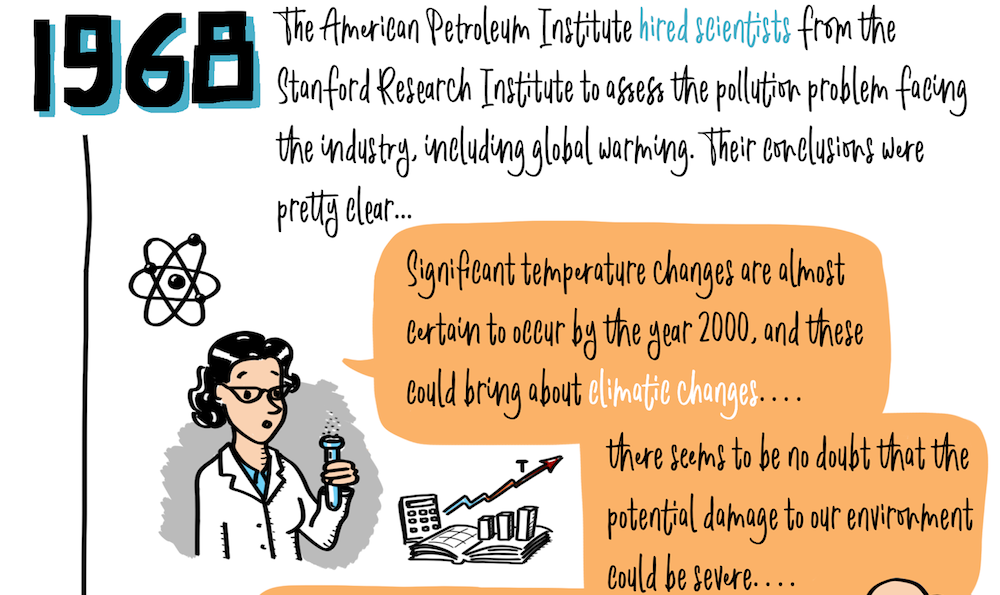By now, it’s no secret that oil companies have been long aware of the risks of climate change from burning fossil fuels. Exxon had “no doubt” that carbon dioxide was a global threat by the late 1970s, and Shell wrote in 1988 that the resulting climate change might lead to “the greatest [changes] in recorded history.”
But decades before, the oil industry was already privy to — and giving its own internal warnings about — the climate threats of carbon pollution from burning its products. In fact, as one science-and-art collaboration illustrated this week, that was happening before humans even landed on the Moon in 1969.
“Today much is being discovered about the history of fossil fuel producers, their knowledge of climate science, and their promulgation of disinformation to the public and policymakers,” Stanford researcher Benjamin Franta told DeSmog. “That information is crucial for understanding how the climate catastrophe was knowingly created and how to fight back — but much of it is in reports and academic articles not read by many.”
However, thanks to Stanford student Nathan Chael, who heard Franta speak about his doctoral research in this area, that information is taking a more artistic and accessible form. Chael suggested that Franta translate his academic work into an illustration and connected him with sustainability consultant and illustrator Alexandre Magnin.
The result of Franta and Magnin’s collaboration is a three-part series of illustrations giving a narrative timeline of Big Oil’s knowledge of the human impact on the climate and its decisions about what to do with that information.
Posted here with permission is episode one in the series, which starts with the oil industry’s early knowledge of fossil fuels’ impacts on the environment in the 1950s and ‘60s. One notable event the pair highlighted in this comic was the 1965 speech by American Petroleum Institute CEO Frank Ikard on the “catastrophic consequence” of carbon pollution.
Magnin will post episodes two and three on his website Sustainability Illustrated in the coming months.
Main image: What Big Oil knew about the impacts of burning fossil fuels on the climate before humans landed on the Moon. Credit: Alexandre Magnin in collaboration with Benjamin Franta, used with permission
Subscribe to our newsletter
Stay up to date with DeSmog news and alerts








